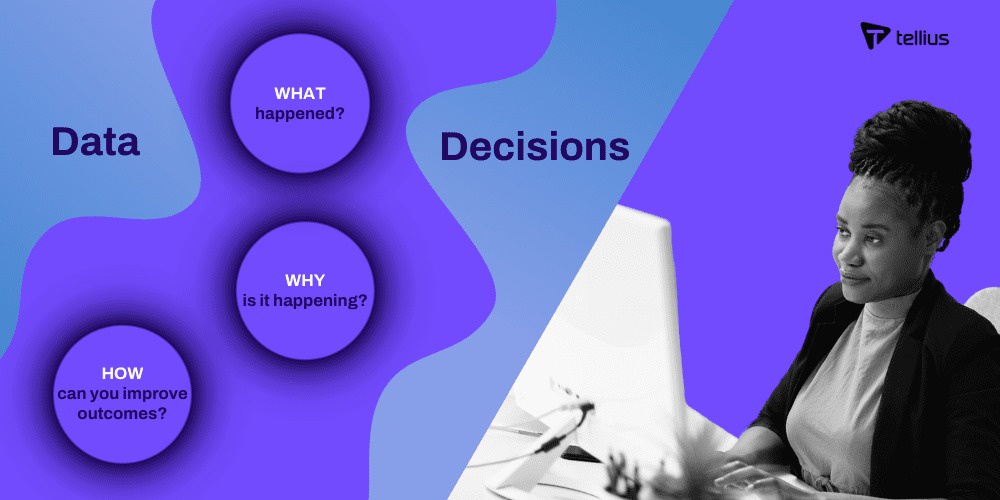In today's fast-paced and data-driven world, businesses face the challenge of making informed decisions amidst overwhelming amounts of information. With the advent of big data and artificial intelligence (AI), organizations have access to more data than ever before. However, the key to success lies not just in accumulating data, but in leveraging it effectively to drive intelligent decision-making. This is where Decision Intelligence (DI) emerges as a game-changer, offering a systematic approach to turning data into actionable insights.
Understanding Decision Intelligence:
Decision Intelligence is more than just a buzzword; it's a discipline that combines data science, AI, and human decision-making processes to optimize decision outcomes. At its core, DI seeks to enhance decision-making by integrating analytical techniques with human judgment, enabling organizations to make smarter choices amidst complexity and uncertainty.

Harnessing the Power of Big Data:
In today's digital landscape, data is generated at an unprecedented rate across various sources such as social media, IoT devices, and online transactions. Big data analytics allows organizations to extract valuable insights from this vast pool of data, uncovering patterns, trends, and correlations that were previously hidden. Decision Intelligence takes this a step further by synthesizing these insights into actionable intelligence, empowering decision-makers to make informed choices backed by data-driven evidence.
The Role of AI in Decision Intelligence:
Artificial Intelligence algorithms play a pivotal role in Decision Intelligence by automating processes, analyzing complex datasets, and predicting future outcomes with remarkable accuracy. Machine learning algorithms, for instance, can identify patterns in data and generate predictive models that aid decision-makers in forecasting trends and anticipating potential risks. Moreover, AI-powered decision support systems provide real-time recommendations and insights, augmenting human decision-making capabilities and reducing cognitive biases.
Enhancing Strategic Decision-Making:
In the realm of business strategy, sound decision-making is paramount for sustainable growth and competitive advantage. Decision Intelligence enables organizations to formulate strategic plans by leveraging data-driven insights to assess market dynamics, identify opportunities, and mitigate risks. Whether it's optimizing resource allocation, launching new products, or entering new markets, DI empowers executives to make strategic decisions that drive business success.
Managing Risk and Uncertainty:
In an increasingly volatile and unpredictable business environment, managing risk is essential for mitigating potential threats and seizing opportunities. Decision Intelligence equips organizations with the tools and methodologies to assess risks systematically, prioritize mitigation strategies, and adapt swiftly to changing circumstances. By integrating probabilistic models, scenario analysis, and simulation techniques, DI enables decision-makers to anticipate potential outcomes and devise contingency plans accordingly.
Balancing Data-Driven Insights with Human Judgment:
While data and AI technologies provide valuable insights, human judgment remains indispensable in the decision-making process. Decision Intelligence recognizes the complementary roles of data-driven analytics and human intuition, fostering collaboration between data scientists, analysts, and domain experts. By fostering a culture of evidence-based decision-making, organizations can leverage the strengths of both quantitative analysis and qualitative judgment to achieve optimal outcomes.
Ethical Considerations in Decision-Making:
As organizations harness the power of data and AI, ethical considerations become increasingly important in decision-making processes. Decision Intelligence emphasizes the importance of ethical guidelines and responsible use of data to ensure fairness, transparency, and accountability. By incorporating ethical frameworks into decision models and algorithms, organizations can mitigate biases, uphold integrity, and build trust with stakeholders.
In the era of big data and AI, Decision Intelligence emerges as a critical enabler of organizational success, empowering decision-makers to navigate complexity, mitigate risks, and seize opportunities with confidence. By leveraging data-driven insights, AI technologies, and human judgment, organizations can unlock the full potential of Decision Intelligence to drive innovation, enhance competitiveness, and achieve sustainable growth in an increasingly uncertain world. As we continue to embrace the power of data and AI, investing in Decision Intelligence will be key to staying ahead of the curve and thriving in the digital age.


No comments yet